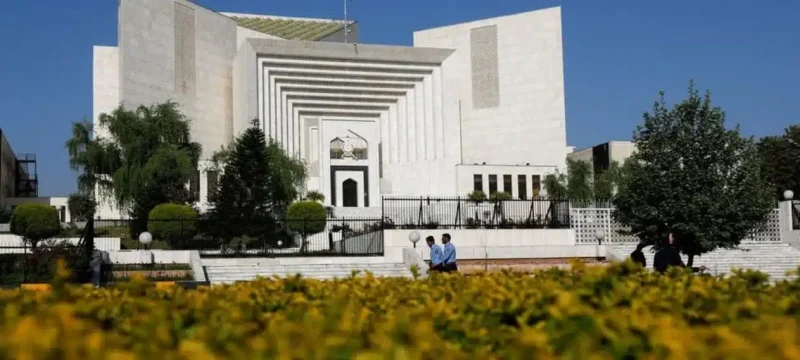The Supreme Court of Pakistan has delivered a significant verdict, declaring the recently enacted law, the Supreme Court (Review of Judgements and Orders) Bill, 2023, as ‘unconstitutional’. This law aimed to extend the scope of review jurisdiction in cases decided under Article 184(3) of the Constitution. The legislation had successfully passed through both the National Assembly and the Senate before being signed into law by President Arif Alvi.
However, the Supreme Court itself became aware of the law’s existence during a hearing related to the Election Commission of Pakistan’s (ECP) review petition. A three-member bench, led by Chief Justice of Pakistan (CJP) Umar Ata Bandial, commenced a review of the implications and constitutionality of the law. The bench also included Justice Ijazul Ahsan and Justice Munib Akhtar.
Read more : Supreme Court postponed hearing on ECP plea in Punjab polls case for one week
The court’s verdict underscores a crucial constitutional principle, affirming that Parliament lacks the authority to legislate regarding matters that pertain to the jurisdiction and powers of the Supreme Court. The court’s decision, while acknowledging the apparent intention to subject the review jurisdiction of the court to parliamentary legislation, points out that the scope for such legislation is constrained by other Articles within the Constitution. These Articles, combined with the broader scheme of the Constitution, are designed to uphold the independence of the judiciary, an essential cornerstone of the democratic framework.
The court’s assessment delves into the intricacies of the law and its implications, emphasizing that the authority to legislate with respect to the review jurisdiction, as stipulated in Article 188, is circumscribed by other constitutional provisions. It highlights that the power to frame rules to regulate the practice and procedure of the Supreme Court, as granted by Article 191, firmly rests within the Supreme Court itself.
This verdict carries significant implications for the separation of powers, the independence of the judiciary, and the constitutional balance in Pakistan. It underscores the essential role of the judiciary in interpreting and upholding the Constitution, while also affirming the limitations on the legislative branch when it comes to matters affecting the judiciary’s jurisdiction and authority.
In conclusion, the Supreme Court’s declaration of the Supreme Court (Review of Judgements and Orders) Bill, 2023, as ‘unconstitutional’ reaffirms the judiciary’s pivotal role in maintaining the democratic framework and upholding constitutional principles. This ruling not only addresses the specific law in question but also reinforces the broader constitutional boundaries between the legislative and judicial branches, safeguarding the independence of the judiciary in the process.









